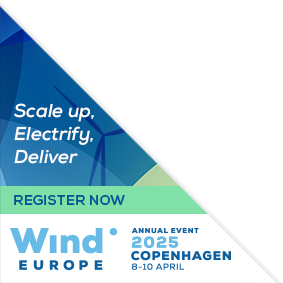Posters
Siblings:
ProceedingsProgrammeSpeakersPostersContent PartnersPowering the FutureMarkets TheatreResearch & Innovation in actionStudent programmePresenters dashboardCome meet the poster presenters to ask them questions and discuss their work
We would like to invite you to come and see the posters at our upcoming conference. The posters will showcase a diverse range of research topics, and will give delegates an opportunity to engage with the authors and learn more about their work. Whether you are a seasoned researcher or simply curious about the latest developments in your field, we believe that the posters will offer something of interest to everyone. So please join us at the conference and take advantage of this opportunity to learn and engage with your peers in the academic community. We look forward to seeing you there!

PO160: A cloud-based enterprise climate platform
Mark Zagar, Senior Specialist, Vestas
Abstract
High performance computing (HPC) is a fundamental component in many areas of renewable energy technology and business development: wind farms and other renewable energy prospecting and system integration, performance calculation and associated value attribution, wind turbine design, and more. It used to be a normal part of a large company like Vestas to own and operate an on premise HPC. This is associated with scalability challenges, since the future required volume of computational capacity is very uncertain. A cloud-based HPC seems to be an elegant solution. It merges scalable performance, infinite storage volume, modern HPC architecture, and specialist operational support. We will present the concept, architecture, design, and plenty of value creating examples and use cases of the climate library which is a prominent example where the cloud HPC provides an optimal platform for a system composed of "big" functions: simulation, data, and querying/analytics. Another potential of a cloud-based system is that other data areas are easily accessible. In particular, the meteorological measurements collected through resource assessment campaigns and all the associated meta-data are available to be used to tune the numerical weather prediction models that produce the climate simulations, and to enrich and calibrate the simulation results. We are presenting how the measurement data from over ten thousand locations with at least one year at each of them, is integrated into the climate library through various methods ranging from simple model output statistics, to various machine learning algorithms. First attempts have also been made to design an AI supported framework to systematically utilize the data collected from the wind turbine sensors, to both calibrate the simulated climate data, and to provide the weather and climate context for the data from the wind turbine sensors. Main challenges will be discussed in the presentation.










